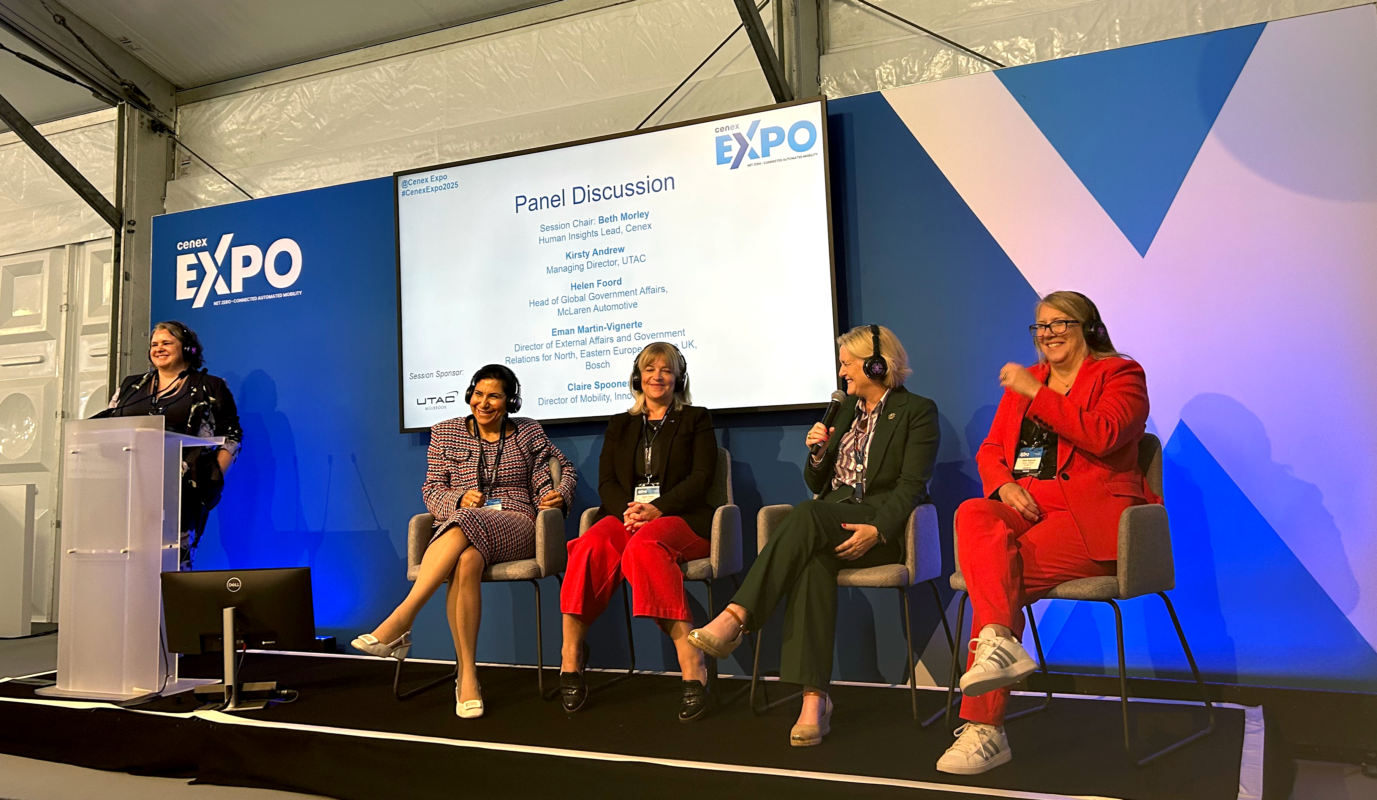
- Categories:
- News
- /
- Blog
Women in Innovation
Blog: By Beth Morley, Human Insights Lead, Cenex
At a lot of the industry conferences I’ve attended, panel discussions typically follow a familiar pattern: a stage lined with experts, a series of technical slides, and an audience distractedly checking their emails. However, the session I had the privilege of chairing at the Cenex Expo ‘Women in Transport Innovation’ felt different. It was warmer, more candid, and, judging by the conversations that continued afterwards, far more memorable.
Listening to senior women in transport share their challenges and victories resonated deeply. The honesty, laughter, and openness in admitting where the system still falls short fostered an atmosphere focused on connection rather than posturing. In that environment, the concept of “innovation” shifted from being solely about technology to encompassing the people who drive it.
Innovation begins young
A recurring theme highlighted the biases that influence our choices long before we enter the workforce. Claire Spooner from Innovate UK pointed out that most primary school teachers in the UK are graduates in humanities, many of whom are women. This trend subtly discourages children from pursuing STEM fields, not out of malice, but through the quiet reinforcement of what feels “normal.” To broaden the pathway into transport and engineering, we must intervene early. We should help schools demonstrate that subjects like maths and mechanics are not to be feared. Rather, they present exciting opportunities for the future.
Recruitment isn’t always impartial
Later, the conversation shifted to hiring practices. Even small changes, such as simplifying job advertisements and emphasising skills and values instead of rigid checklist requirements, can lead to a more diverse pool of candidates. As highlighted by Helen Foord at McLaren Automotive, the data is clear: women apply less frequently, but when they do, they are just as qualified as their male counterparts. However, as one moves up the career ladder, the barriers become more rigid. Experience, which should be an asset, often becomes a liability because recruitment heavily relies on “hard science” credentials while undervaluing the leadership and collaboration skills that are essential for innovation. The glass ceiling is not just a cliché; it remains a persistent reality.
Diversity as an engine of progress
The panellists agreed on a significant truth that still feels radical in many boardrooms: diversity is not just a moral imperative; it is a catalyst for better products and smarter businesses. However, while the rhetoric of inclusion is common, actual practice often lags. Engineers continue to be viewed as the primary gatekeepers of “real” innovation, with contributions from other disciplines frequently treated as secondary.
One notable proposal came from Eman Martin-Vignerte of Bosch, who is also a board member of Cenex: creating technical certification pathways for non-engineers to ensure that expertise beyond the traditional mould is recognised and legitimised. At Cenex, we provide EV infrastructure training to local authorities, demonstrating that bridging knowledge gaps across disciplines can transform how innovation occurs.
A generational shift
Perhaps the most hopeful moment came from the audience itself. The younger professionals in the room were not content to adapt to the world as it is; they wanted to reshape it. They questioned assumptions, challenged hierarchies, and refused to adhere to outdated rules. Their stance felt less like rebellion and more like inevitability: the world we live in was constructed by a narrow group of people, and it will take a broader coalition to rebuild it into something more inclusive. Kirsty Andrew from UTAC pointed out that experience shows being disruptive has always been an important part of pushing against the gender divide
In the end, that may be the true measure of progress. One day, we may no longer need a “Women in Transport Innovation” session, because diversity will no longer be a special agenda item but the default condition of the industry. Until that time comes, creating candid, open, and disruptive spaces like this at Cenex Expo and other industry events is not just worthwhile but essential.